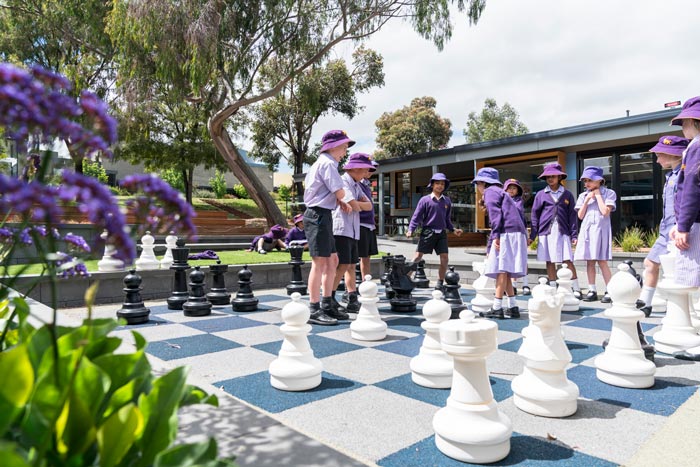
‘Who can I play with now?’
Around the same time every year, often after a term break, we see an age-appropriate developmental shift in some Junior School children and their interests. Their focus changes, and sometimes their friendship circles change too. While not deliberately intended to hurt, this can be unsettling for friends who now feel an obvious distance; it can even be disconcerting for the child themselves.
A change in friendship circles can be particularly difficult for children when the unstructured part of the school day arrives at recess or lunchtime, and feelings of isolation become more prominent – often expressed by the children by the question, ‘Who can I play with now?’
‘What do I do at lunchtime?’
We typically see these changes with girls in Year 2, and again in Year 4. Boys are sometimes 12 months or so behind the girls socially. Supporting your child as they branch out and make friends across different classrooms, year levels, and interest groups – such as choirs or bands or in sport – is an important strategy to prepare them for these changes. Wesley has something of a ready-made solution for this – lunchtime clubs.
We offer a wide range of lunchtime club activities each week that provide an entry points for children to explore new interests and meet new people.
Recently, one of our Year 3 girls explained to me that she enjoyed going to Library Club in the new library because she could ‘read all different kinds of books,’ and that she ‘got to know another student much better – she likes the books that I like to read.’
‘Who do I tell?’
If your child starts talking about a shift in their friendships, we encourage you to discuss this with your child’s classroom teacher. It may be something that can be eased with some structured and considered adult support, such as at a lunchtime club, or there may be more to the friendship shift that needs to be explored.
At home, take time to sit with your child, give them suggestions about how to join a discussion or game with new friends, or how to re-focus on different kinds of play, such as soccer or downball. As a parent, you can adopt a positive position and encourage your child to explore new friendships. Remind them that while they are interested in different things now, their old friends still have many wonderful qualities.
Let them know that we all have times when our friendships change, and that this is fine. Good friends sometimes need space to be themselves and do things differently. As Australian clinical psychologist Judith Locke suggests, helping children understand that their fears and these changes are a normal part of growing up can assist children in their understanding.
Dr Natasha Wardman, from the Australian Catholic University, adds that organising play dates with peers who are socially competent and have similar interests to your child can help, as can participating in school-based extra-curricular activities and clubs.
Wesley’s lunchtime clubs operate across the week from 1.00pm to 1.30pm.
Ben Dooley is the Head of Junior School at the Glen Waverley Campus
